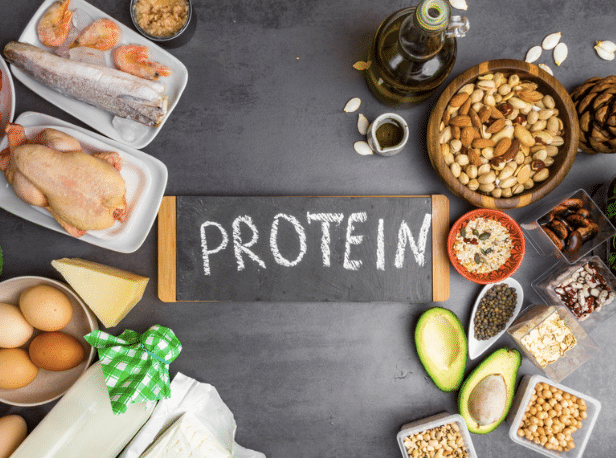Salt is a kitchen staple. It flavors our home-cooked meals, preserves our foods, and keeps our bodies functioning. It is essential. However, salt and sodium have become topics of concern over the years as sodium content has increased in packaged and processed foods.
While sodium is a necessary nutrient for the body, overconsumption can cause health problems in the future. Studies have shown that a low-sodium diet decreases the risks of cardiovascular events. Diets high in sodium can increase other health concerns as well. Finding the right balance when it comes to sodium consumption can be a challenge, as both excessive and inadequate intake can lead to medical issues.
Health coaches coach their clients on the benefits and concerns of salt intake to help them strike a healthy balance. To ensure optimal health, it’s important to understand the potential dangers of salt and how to make informed choices. Here are essential salt and sodium facts to help health coaches guide clients in balancing their salt intake.

Salt vs Sodium
Today, the terms salt and sodium are seemingly interchangeable. However, there are differences between the two. Sodium is a chemical element represented by the symbol Na and atomic number 11 on the periodic table. Salt, also known as sodium chloride, is an additive made of about 40% sodium and 60% chloride. Some types of salt are fortified with other minerals, such as iodine, iron, or folic acid.
Generally, salt is used to flavor foods. However, this is not where a majority of a person’s salt intake comes from. Historically, salt was used to preserve food, as bacteria do not grow in areas of high sodium. Today, companies use forms of sodium to preserve food allowing it to stay fresh longer, remain shelf stable, and travel around the world.
The average person gets 71% of their sodium intake from processed and restaurant foods. This is compared to the 14% that naturally occurs in foods and the 11% from home cooking and individuals adding salt at the table.
Benefits
Salt is not just a seasoning; it serves critical functions in the body. It facilitates the transmission of nerve impulses and supports muscle function. Additionally, salt and sodium help maintain fluid balance by ensuring optimal hydration and contribute to regulating blood pressure. This is why it is recommended to drink electrolytes, a form of salt, when dehydrated.
Most importantly, it enhances the taste of food, making meals more enjoyable, and making some healthy food more palatable. Sometimes you just need to add a bit of salt to salad, veggies, or protein to truly enjoy it.

Recommended Salt Intake Guidelines
According to Harvard, “the U.S. Dietary Reference Intakes state that there is not enough evidence to establish a Recommended Dietary Allowance or a toxic level for sodium.” However, Guidelines for Adequate Intake have been established based on studies. For men and women ages 14 and over, 1,500 milligrams a day is recommended, with 2,300 milligrams a day as the maximum amount to consume.
Health coaches can help clients manage their sodium intake by discussing situations where added salts or higher sodium is non-negotiable. For example, if a client suffers from certain chronic conditions, their physicians may recommend adding electrolytes to their diet, or a client may insist that they can only eat veggies with added salt. That doesn’t mean that there aren’t ways for clients to stay within a healthy sodium range. Health coaches are there to help clients find the right balance between consuming necessary salts and staying within a healthy range.
Concerns about Excess Salt Intake
While salt and sodium are essential, excessive consumption can have detrimental effects on our health. High salt intake is strongly associated with elevated blood pressure, increasing the risk of cardiovascular diseases such as heart attacks and strokes. According to the American Heart Association, 90% of adults will develop high blood pressure in their lifetime. So, limiting sodium intake can help reduce the rise in blood pressure that happens as we age.
Health coaches can also share extra resources about ways to maintain healthy blood pressure as clients age to reduce damage to blood vessels. Combining healthy strategies and working alongside a health coach to ensure sustainable lifestyle changes can have a profound effect on a client’s overall health.
Strategies for Reducing Sodium Intake
In addition to educating clients about the impact of excessive sodium on their health, health coaches can offer practical tips for reducing sodium intake. There are practical strategies that can help you cut back on salt while still enjoying delicious meals.
- Read Nutrition Labels: This not only allows you to choose the option with less sodium, but by reading nutrition labels you will become more aware of the amount of sodium in your foods, allowing you to become more mindful of how much sodium you are consuming.
- Avoid Processed Foods: When possible, avoid processed foods. This can be as simple as choosing unsalted snacks or making homemade salad dressing instead of buying pre-made. This eliminates any added preservatives and salt pre-packaged items have for increased shelf life.
- Cook at Home: When you choose to cook at home, you have control over the ingredients used. You can actively choose fresh ingredients over processed foods and use lower sodium products when needed.
- Add Flavor with Seasonings: Instead of relying on table salt for added flavor, consider adding other herbs and spices. Experiment with new combinations to make a flavorful dish without the added sodium.
- Buy Fresh: Fresh fruits and vegetables are a great way to avoid added sodium. While canned foods are less expensive, they include extra sodium, even sweet items like fruit. If possible, purchase meat from a local butcher as processed meats may include added salt water or saline.
- Monitor Sodium Intake: By actively monitoring your sodium intake, you can avoid going over the recommended daily amount.
- Work with a certified health coach: A certified health coach will help you make the sustainable lifestyle changes you need to live a healthier life. If you are finding it difficult to implement the changes above, a health coach can help you take it one step at a time.
Finding a balance in salt intake is essential for overall well-being. While salt is necessary for various bodily functions, excessive consumption can lead to health complications. By adopting healthier dietary habits, such as reading food labels, cooking at home, and using herbs and spices, you can reduce your salt and sodium consumption and improve your overall health. Health coaches help clients make healthier choices and encourage them as they on their health and wellness journey.
Our Latest Blogs
-

Would You Be a Good Health Coach?
Read Full Article: Would You Be a Good Health Coach? -

Food Sensitivity Testing 101: Supporting Clients with Inflammation and Gut Issues
Read Full Article: Food Sensitivity Testing 101: Supporting Clients with Inflammation and Gut Issues -

Protein 101: The Health Coach’s Guide
Read Full Article: Protein 101: The Health Coach’s Guide

